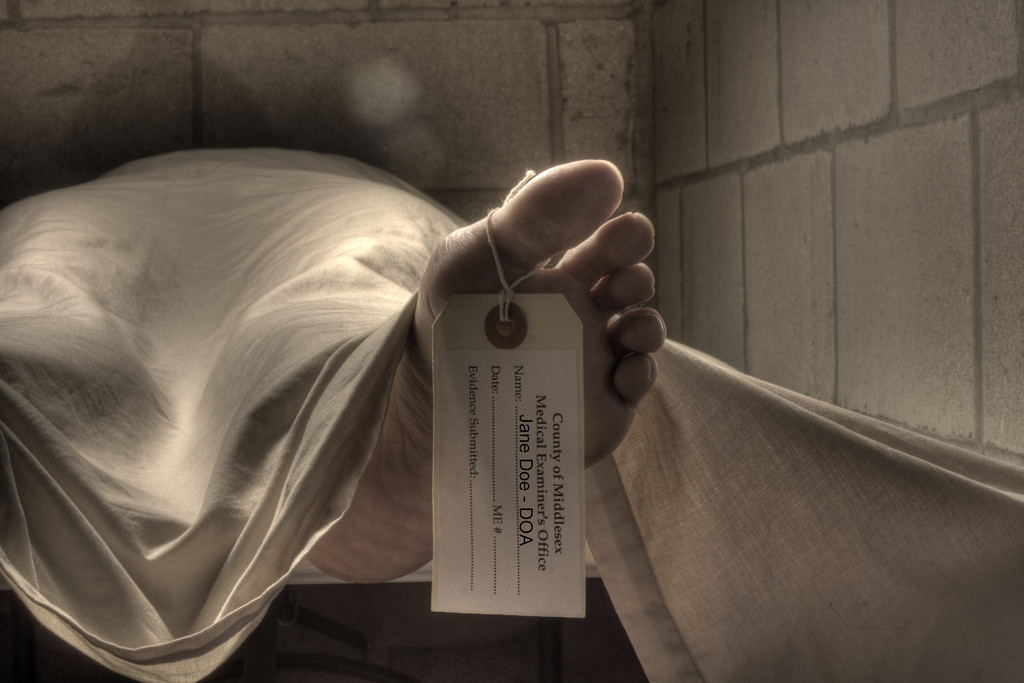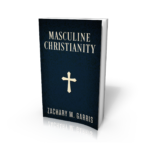“For the mind that is set on the flesh is hostile to God, for it does not submit to God’s law; indeed, it cannot. Those who are in the flesh cannot please God… And those whom he predestined he also called, and those whom he called he also justified, and those whom he justified he also glorified… And you were dead in your trespasses and sins in which you one walked….But God, being rich in mercy, because of the great love with which he loved us, even when we were dead in our trespasses, made us alive together with Christ… (Rom. 8:7-8, 30; Eph. 2:1, 4-5).
 In the last post, I affirmed and explained what Jesus meant in John 3:7 when He said, “You must be born again”. Because this post is a follow-up to the previous post, it is necessary to review.
In the last post, I affirmed and explained what Jesus meant in John 3:7 when He said, “You must be born again”. Because this post is a follow-up to the previous post, it is necessary to review.
If you haven’t read the last post yet, definitely go and read it. Even if you have, let’s briefly review three key aspects of the New Birth that we observed:
- The biblical term “born again” has been widely misunderstood and misused in contemporary Christian usage. For example, we saw that it is not a synonym for the entire process of salvation, but it is a unique act of God prior to the moment of faith, because…
- The New Birth (a synonym for ‘born again’) happens to us, not by us. We saw this primarily from Jesus’ interaction with Nicodemus in John 3 when Jesus says “Do not marvel that I say you must be born again” (John 3:7) because “the wind blows where it wishes” (John 3:8). We saw that this means that the Spirit’s work in the New Birth is both free (you can’t control it) and invisible (you can’t see it, but you can see its effects).
- John gave us helpful explanations of the New Birth 1 John. We looked at a few verses that mention the New Birth, and upon synthesizing the relevant passages, we saw that the New Birth is a past event that changes us into people that are able to believe. I observed from 1 John 5:1 and 1 John 5:4 that the New Birth precedes, enables, and is the causality of faith. Therefore, where belief is present, the New Birth has occurred.
It is for those three reasons that the New Birth is necessary: we have to believe in order to be saved (John 3:16); and the New Birth is necessary to believe, according to 1 John 5:1; therefore, without the New Birth, we will not be saved.
Therefore, the New Birth is necessary, and Jesus statement in John 3:3 and John 3:7 is affirmed and explained.
Q: Why Is The New Birth Necessary?
The New Birth is absolutely necessary because, before it, we are so dead and enslaved to sin that we are unable and unwilling to believe.
You may be thinking, “You just proved the New Birth is necessary, right?” Indeed, we did just see from the Bible that the New Birth is absolutely necessary to be saved, and this is the case because if it didn’t happen, we wouldn’t believe. But why is this the case? What about us needs the New Birth to happen? What is it about our nature that requires such an act?
We have already seen that without the New Birth we will not believe, but now we will see that without the New Birth we cannot believe. These are virtually identical statements, but the latter adds another layer, another dimension of depth to the truth of the necessity of the New Birth.
This is the truth that I will attempt to show from the Bible for the remainder of this post: the New Birth is absolutely necessary because, before it, we are so dead and enslaved to sin that we are unable and unwilling to believe. To some, this may sound offensive.
In fact, this notion is one of the major dividing lines between major theological systems. But this is a truth that we must affirm if we are to affirm the absolute necessity of the New Birth. If you have trouble with the notion that we are totally unable to believe before God makes us born again, I encourage you to ask the Lord to help you see how you really were before you were saved.
This truth is meant to make us humble, not angry. With that said, let’s dive into the Scriptures.
A: Because We Are Dead Slaves
Romans 8:7 says, “For the mind that is set on the flesh is hostile to God, for it does not submit to God’s law; indeed, it cannot.” This statement is the pinnacle of Paul’s argument in the first part of Romans 8. Paul has just spent the preceding six verses explaining why “There is therefore now no condemnation for those that are in Christ” (Rom. 8:1).
This is the case because the Spirit has set us free (8:2). But from what are we set free? Paul develops his argument (which started in Rom. 7:18-24 when he asserts that the Law commands, but doesn’t give the power to obey, and thus condemns) in verse 3 (note the word ‘for’, which indicates a developing argument!) when he says that “God did what the Law, weakened by the sinful flesh, could not do [i.e. give the power to obey and provide pardon]. By sending his own Son in the likeness of sinful flesh and for sin, he condemned sin in the flesh…”
In other words, the Law only gave the command, not the ability to obey, therefore, those under the Law are all condemned. But God set those of us in Christ free from the Law by condemning our sin in Jesus and giving us the Spirit.
It is only in light of this passage that Paul’s statement in Romans 8:7 makes sense: God had to go to the lengths that He did (crucifying his Son!) because before you were saved, you were not only unable to obey God and believe, you were unwilling.
This is a horrific condemnation. Those in the flesh are unable and unwilling to believe: they are “hostile to God” as Paul says.
Some hear this to mean that we really want to believe but are being kept from doing so, against our will, so to speak. But that is simply not what Paul says! Our inability is not physical (like being chained to a pole against our will), but moral (like being so disgusted by something that it is unthinkable to do it; cf. Rom. 1:21-28).
Paul says the same thing another way in Ephesians 2. He says that we were “dead in our sins” (Eph. 2:1), conformed to the world (Eph. 2:2), slaves to bodily desire (Eph. 2:3), and “children of wrath” (Eph. 2:3).
The last one is particularly terrible, almost serving as the sum of the condemnations given before it: because we are spiritually dead and unresponsive to God, because we are conformed to the world, because we are slaves to bodily desire, the result is that we are children of wrath. Dead. Conformed. Slaves. Wrath. This is not the pretty picture the world paints of humanity.
The world thinks humans are generally good, and because we are conformed to the world, we think that way too. But Paul says were are dead, conformed, slaves that receive wrath. We are not generally good: we are totally bad. We will see why the word ‘dead’ is so important later…
Q: What Is the New Birth Then?
How do these two texts in Romans and Ephesians help us understand why the New Birth is necessary? And how do they help us see what the New Birth really is? Because they show us how bad we really are and what has to happen to us in order to believe.
Because we are unable and unwilling to obey and believe as Romans 8:7 tells us, and because we are wrath-deserving, dead, conformed, slaves as Ephesians 2 tells us, the New Birth is the creation and giving of spiritual life that enables belief. This is evident in the two passages we looked in previously.
A: The Creation of the Command of the Call
God commands us to believe (Acts 16:31). But because we are unable to obey God (Rom. 8:7), we are unable to believe; therefore, God creates what He commands. Let’s look at Romans 8 again to see this aspect of the New Birth. In Romans 8:30, Paul says, “And those whom he predestined he also called, and those whom he called he also justified, and those whom he justified he also glorified.”
He is explaining what he means by “all things work for the good of those who love God and are called according to his purpose” in the beloved promise of 8:28. All things work for my good if I am called because if God predestined me, called me, justified me, then my eternal destiny to be conformed to the image of Jesus is secure, thus my glorification is past-tense (note: “glorified).
The New Birth is God’s calling into existence and enabling saving faith in Jesus.
I want to hone in on one clause of this glorious, unbreakable chain of salvation: “Those whom he called he also justified”. Of those whom God called, none failed to be justified.
We could say, “All those whom he called he also justified”, not one was left our or failed to be justified. Why is this the case; moreover, how is this the case?
Answer: all those God calls to be justified are justified because the call of God creates what it commands. We know that justification comes by faith, as is Paul’s argument for the majority of Romans (cf. Romans 4:3-6; 5:1).
Therefore, we can accurately say that God’s calling to justification in Romans 8:30 is God’s calling to faith. If justification comes by faith, and all those God calls come to be justified, then all those God calls believe. This only makes sense if we understand what Paul means by “call” here.
For the sake of time, Paul uses “call” as a synonym for what John calls being “born again” (cf. 1 Cor. 1:22-24; 2 Cor. 4:4-6). Therefore, we see a marvelous aspect of the New Birth from this passage: the New Birth is God’s calling into existence and enabling saving faith in Jesus.
A: The Creation of Spiritual Life
A further connection can be made in Ephesians 2:1-4. As we just saw, belief is necessary to be justified, and all those God calls believe, therefore all those God calls he enables to believe. John 20:31 tells us that belief and spiritual life are indistinguishable: where one is present, so is the other.
This is the same language paul uses in Ephesians 2:1-4 when he says that we “were dead in [our] sins and trespasses”. As we noted above, death is a harsh word to describe our state before Christ. But it’s true.
The scientific proof of death is “no longer responds to external stimuli”: eyes don’t dilate, the heart doesn’t respond to electric shock, toes don’t respond to pressure on ligaments. And just as physically dead people don’t respond to external physical stimuli, spiritually dead people don’t respond to external spiritual stimuli.
The Gospel is preached to them, the Bible is explained to them, godliness is showed to them…all to no avail. “The god of this age has blinded the eyes of unbelievers to keep them from seeing the light of the Gospel of the glory of Christ” (2 Cor. 4:4).
Dead people can’t make themselves alive again.
But just as Jesus called Lazarus to life by saying “Lazarus, rise!” (John 11:38-44), God calls us to life, and life is created. “You were dead in your sins…But God…made you alive…” (Eph. 2:1, 4; emphasis mine). We were dead, but God made us alive! Notice the agency in that passage: God is active, we were passive. God (actively, powerfully) made us (passively, helplessly) alive!
Don’t get me wrong: we do the living! If you don’t live, there won’t be life! Nonetheless, God creates life in spiritually dead sinners.
Juxtaposing the two aspects of the New Birth that we have just seen, we can accurately say now that the New Birth is the sovereign act of God the by which He powerfully and effectually calls into existence spiritual life and faith in a dead, sin-enslaved, worldly-passion conformed, sinner.
This creative call of God is what is necessary for us to be saved; because, without it, we who are dead sinners who are hostile to God, would not and could not obey the call and believe.
Implications
I was somewhat hesitant in writing these posts the way I did for a couple reasons. I wrote these posts with the biblical force this doctrine requires and I knew that it would fall one of two ways on people’s ears: 1) someone that is so spiritually frail as a new believer might hear the seriousness of this biblical teaching on what had to happen to them and they might be scared it didn’t; or 2) someone might be so convinced they are born again and write this truth off as unnecessary. I pray I did it well. I think there is a good comfort in John 1:11-13.
Speaking of Jesus, John says, “He came to his own, and his own people did not receive him. But to all who did receive him, who believed in his name, he gave the right to become children of God, who were born, not of blood nor of the will of the flesh nor of the will of man, but of God.”
Have you received in Jesus as your Lord, Savior, and Treasure? Do you trust Him and His righteousness as your only hope before a holy God? Do you believe that He rose again for your justification?
Then, according to this text, you are born again. We can’t see the wind, but we can see the leaves it rustles. Likewise, we can’t see the Holy Spirit, but we can see belief in ourselves and in others. “Do not marvel that I say ‘You must be born again'”, rather, “whoever believes in [me] may have eternal life” (John 3:15). Believe.
For further reading:
John Piper, Finally Alive
John Calvin, Institutes of the Christian Religion (Book III, ch. 3, sec. 1)
Robert Peterson, Salvation Applied by the Spirit: Union with Christ






Responses